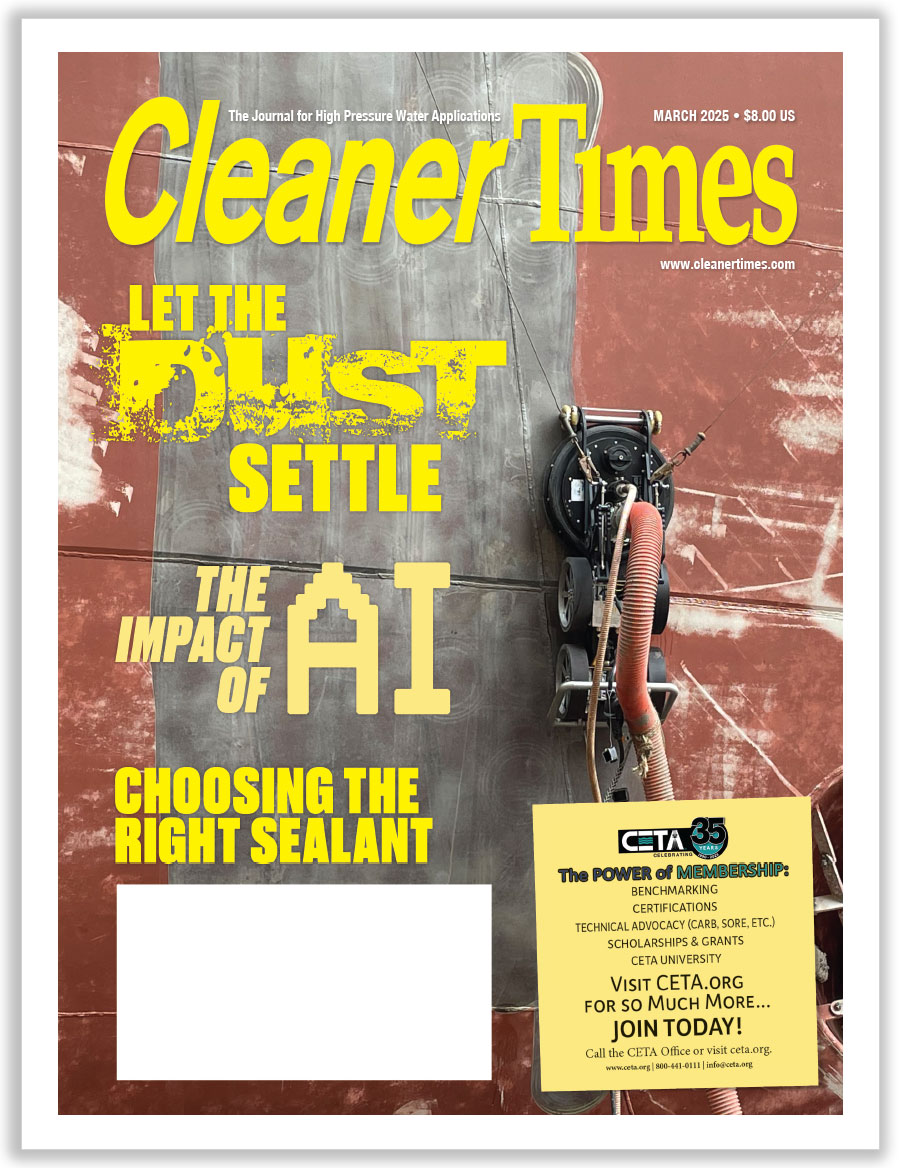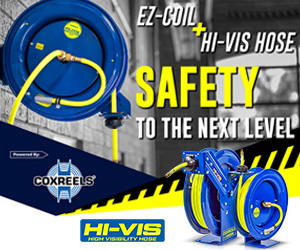
Breaking It Down—Commercial General Liability Insurance
By Tom Svrcek / Published July 2023

Editor’s Note: This is part one of several articles that will cover different aspects of insurance. In future issues, commercial umbrella liability insurance, business personal property and contents insurance, commercial inland marine insurance, commercial auto policy, garage keepers’ insurance, workers’ compensation policy, contractors’ pollution liability policy, certificates of insurance, janitorial service bond, and license and permit bonds will be covered.
As a member of the power wash community, it likely doesn’t come as a surprise to hear that there are a variety of insurance coverages needed to operate a power washing business safely. Think about the kinds of accidents or lawsuits that could damage your business. This summary will help you better understand a few of the types of coverages you may need to keep you from financial disaster.
Commercial General Liability (CGL)
What is commercial general liability? This coverage protects against financial loss as the result of bodily injury, property damage, medical expenses, libel, slander, and defending lawsuits. This type of insurance policy provides coverage to a business for bodily injury, personal injury, and property damage caused by the business operations or products, or injury that occurs on the business premises. Commercial general liability is considered comprehensive business insurance, though it does not cover all risks that a business may face.
Breaking Down Commercial General Liability
Commercial general liability policies have different levels of coverage. A policy may include premises coverage, which protects the business from claims that occur at the business’s physical location during regular business operations. It may also include coverage for bodily injury and property damage that are the result of finished products. Some commercial general liability policies may have exclusions as to what actions are covered. Power washers need to carry general liability to protect their business from loss due to property damage to their customer’s property or bodily injury that may occur due to a slip and fall in the water you created.
When purchasing commercial general liability insurance, it is important for the business to differentiate between a claims-made policy and an occurrence policy. A claims-made policy provides coverage over a specific time, and it covers claims that are made during that time period even if the claim event occurred at a different time. An occurrence policy is different in that it covers claims provided that claim event occurred during a specified time period, and it does not cover claims stemming from claim events that occurred before the policy came into effect.
There are many more types of liability insurance policies that your business may need. If you are a distributor/manufacturer of power washers or cleaning supplies, you will want to obtain product liability insurance. This is for businesses that manufacture, wholesale, distribute, or retail a product. This coverage protects against financial loss as a result of a defective product that causes injury or bodily harm.
Assess your risks. Think about what kind of accidents or lawsuits could damage your business. Find a reputable licensed agent. Commercial insurance agents can help you find policies that match your business needs. If possible, locate an agent who specializes in the power wash industry. As a power washer, you should make sure that your general liability policy has the following endorsements added to your policy:
Care Custody and Control, Including Broad Form Property Damage
Accidents happen. This exclusive protection covers you for damage to your customer’s property that you work on, including real property such as a building as well as personal property.
Blanket Additional Insured Endorsement
Usually property owners require you to name them as additional insured. If you have this blanket endorsement already on your policy, it will save you time and money when your customer requests a certificate of insurance.
Blanket Waiver of Subrogation
Larger property owners want this endorsement and require you to waive the right of recovery for losses that may occur on their jobsite. If you have this blanket endorsement already on your policy, it will save you time and money when your customer requests a certificate of insurance.
If you are like most people, your company is, next to your family, your pride and joy. It is also the major source of financial security for you and your family. Your business is your greatest asset, but potential disasters are always present. Your business can also be your greatest liability, as there is no shortage of potential disasters: accidents, vandalism, dealing with employees, dealing with subcontractors, shoddy workmanship and unreasonable deadlines, and let’s not forget dealing with some clients. You need insurance that can cover anything that can hamper your business and endanger your revenue stream. Anything less than that is inadequate! How do you get adequate coverage? How do you know what to buy and what risks face you and your business? There are several things you need to do.
Have business insurance specialists conduct a risk analysis of your company and its operations. No two companies are the same, even two that are in the same business. No contractor does exactly what you do the way you do it. You need an experienced agent familiar with your industry to assess your company and the specific risks it faces—and to put together a comprehensive insurance plan.
Use an independent insurance agent. As a business owner, you want options. As such, don’t call on an agent who is an employee of an insurance company. You want someone who will work for you—someone who has access to a variety of insurance carriers. You want and need an agent who specializes in what you do, whether you call yourself a power washer, roof cleaner, soft washer, or window washer.
Many different kinds of contractors fall under the broad definition of artisan contractors: plumbers, cabinet makers, electricians, and even power wash contractors. Many of the exposures faced by these contractors are similar. They may need property coverage for their building and business contents, too. General liability and a commercial umbrella policy are all insurance contracts typically written for these types of contractors. The focus of this article is to point out exposures that many mobile cleaning contractors have and the coverages available and necessary for these exposures.
Care, Custody, and Control
This important coverage is by far one of the most necessary coverages a power wash contractor might need, but it is sometimes hard to obtain. Accidents do happen. This coverage protects you from damage to a customer’s property that you are working on. Sometimes it is referred to as the “faulty workmanship” coverage since it protects you from mistakes you make. There is an exclusion in most general liability policies that takes “accidents happen” or faulty workmanship out of the policy.
The problem is this: How does a new contractor in business even know to ask for this important coverage? An example is a loss regarding a power wash contracting service. An employee of the power wash service was power washing an expensive floor in a customer’s building. The actual power wash head flew off and drove the spray tip right through the floor and ruined the floor. The insurance carrier for the power wash service denied coverage citing the care, custody, and control exclusion, because without this vital endorsement, there is no coverage for the item that you work on.
As your business grows, so do your liabilities. If you have purchased or replaced equipment or expanded operations, you should contact your insurance agent to discuss changes
in your business and how they affect your coverage.
For more information, call Joseph D. Walters at 1-800-878-3808 or visit www.josephdwalters.com.





